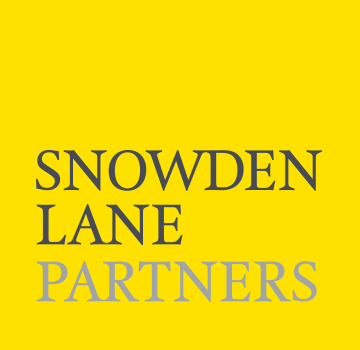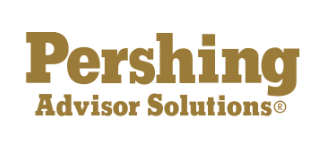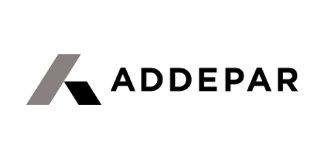Snowden Lane CEO Rob Mooney: How We Got to $9 Billion
October 2021
By Steve Garmhausen
Each year, more and more independent firms present themselves as ideal landing spots for brokers who want to leave the big Wall Street institutions. Snowden Lane Partners, based in New York, says its leadership team of former Merrill Lynch heavy hitters and its W-2 affiliation model help it stand out among the suitors. “The people who join us take the view that we can create greater value collectively as a single brand,” says CEO Rob Mooney, the former general counsel and chief business risk officer for global wealth management at Merrill.
Speaking with Barron’s Advisor, Mooney explains how the firm, ranked by Barron’s among the top 100 RIAs, motivates those employee advisors. He lays out the goal of more than doubling Snowden Lane’s $9 billion of client assets. And he explains how constantly “playing defense” contributed to his decision to leave a prestigious wirehouse position.
A lawyer by training, you had an impressive 22-year career at Merrill Lynch before departing in 2009. Why did you leave? Inthe early 2000s there was a series of scandals on Wall Street related to research and investment banking, and mutual funds and late trading and market timing, and revenue sharing, proprietary products, and cross-selling. I was part of the team that had to constantly defend the firm. And on one hand I just got sick of playing defense; it was a tough role to have. On the other hand, I became disillusioned with the large-firm business model, which I felt was replete with conflicts of interest. After the Bank of America merger, I decided to leave.
You co-founded Snowden Lane in 2011. What was the vision? We put the tag line on it: “There is a better way.” And we founded the firm on several key pillars. The first was to be a values-driven organization. Ours are loyalty, partnership, uncompromising standards, and social responsibility. We decided our firm would be a cutting-edge, independent platform with very foundational principles, and we try to walk the talk.
Secondly, we decided that we were focused on what was right for the client. Nobody in the world is conflict free, and so we raise an eyebrow when we hear that, but we really try to avoid conflict. One of the most powerful recruiting tools we have is a slide that talks about what we don’t do at Snowden Lane: We don’t take revenue sharing, we don’t have markups of product, we don’t use our broker/dealer as a profit center. We don’t have unreasonable policies and bureaucracy.
The third pillar was a focus on financial advisors. At the time we started the firm, you could see that there was disintermediation and fee compression in the product origination and distribution food chain. I took the view that the most important component of that chain was the person closest to the client, the financial advisor. The financial advisor would be the last one to get impacted by all of that change.
Greg Franks, who is Snowden Lane’s managing partner and chief operating officer, was a division director with Merrill Lynch. Lyle LaMothe, your executive chairman, once led U.S. wealth management for Merrill. How did they come to join the business? I was fortunate early on to reconnect with Greg and Lyle; they were colleagues at Merrill. Both started as financial advisors—Lyle in Pasadena and Greg in New Orleans— and they worked their way up through the Merrill Lynch hierarchy. Ultimately, Lyle ran U.S. wealth management and Greg ran the Western division for him. They became investors in Snowden at an early stage after we founded it, and then decided to join. I’ve been fortunate to work with two partners that have their depth and breadth of experience.
What’s your affiliation model? We’re a W-2 model; if you join Snowden Lane, you join as an employee. We’re one brand, one company. We align the interests of all our advisors by virtue of their holding equity. Every advisor who comes into Snowden Lane must take some part of their deal in equity.
We focus on breakaways, and really the person who comes to Snowden Lane is an advisor who knows what they’re really good at, which is typically practice management, and knows what they’re not good at. They have an appreciation of the people who have the experience to handle things like HR, tech, regulatory, real estate, compliance, marketing.
You have 25 teams in 12 office locations nationwide. I would guess that given your leadership ranks that many of those teams have come out of Merrill Lynch. A number have come out of Merrill Lynch, but not predominantly Merrill. We have Morgan Stanley advisors, we have Wells Fargo advisors, we have UBS advisors, and we have Merrill advisors. It’s been a mix.
Snowden Lane is not the only landing place for teams that want to break away from Wall Street. What are your differentiators? I think we are very much differentiated by being the W-2 model: The people who join us take the view that we can create greater value collectively as a single brand. We are very values driven. We are not the high deal on the street by any means, but we are competitive. It’s self-selection; if an advisor really wants to get a high deal, they will go to another wirehouse or Rockefeller.
I think we are also differentiated by our leadership team. I don’t think there’s a leadership team in the independent space that has the depth and breadth and diversity of experience that Lyle, Greg and I bring to the table. And I haven’t mentioned international, but probably about 35% of our firm is now international.
Meaning what? Meaning servicing clients outside of the United States. That, I think, is a real differentiator, because it is a different space, and you have to have experience and a background in it. Greg Franks and I actually met in London many years ago when he was running Middle East in the London office. We spent a nice piece of our careers in the international private client business, so we understand the risks and the issues, and we know how to manage it.
Do your teams tend to have similar end clients? I would say it is high-net-worth and ultrahigh-net-worth, with some on the higher-end affluent side. The typical advisor we hire is doing over a million dollars in production, typically with assets of $150 million-plus. We have some teams that are doing $4 million, we have other teams that are doing $2 million, but they service high-net-worth clients and some ultrahigh-net-worth clients. We have some institutional business as well.
What is your longer-term strategic goal at Snowden Lane? We want to stay a boutique. That said, we have 64 financial advisors right now, and we think we can easily get to a couple of hundred financial advisors and still be very much a boutique. We are just under $9 billion in client assets right now, and our objective is to get to $10 billion, and then take a much shorter time to get to $20 billion and probably double our advisor headcount. There are some very attractive markets in the United States, and we intend to expand our office footprint.
Do you have organic growth goals and how you helped your advisors achieve them? We have a very consultative process; Lyle and Greg in particular have enormous depth of experience. So we have business meetings, we have monthly partners’ calls, we have a lot of collaboration that enhances organic growth as well as recruiting growth. Our advisors are performing very well on the organic side.
Is there a numerical goal for annual organic growth? We’d love to see 10%.
Aside from watching their stock appreciate, are there other financial incentives for advisors to grow assets? Yes.We have a profit share on our equity, so we’ve been fortunate to have performed well. We are profitable now, and we have paid a profit bonus to advisors based on their equity holdings.
We also have a base payout grid, which is 42%. However, we compensate advisors based on their profit margins. We really won’t hire teams that we don’t think can reach a 30% profit margin. For every dollar a team achieves over that 30% margin, we split that 50-50 at the end of the year in a cash bonus. So they have what I call a safety net payout grid, and then an opportunity on top of that based on how efficiently they run their business, and a profit share that is very meaningful.
You mentioned one of the pillars of the business is social responsibility. What does that mean? We are a very values-driven organization. With that said, we do not mandate a singular cause at the firm. We have advisors who participate significantly in charitable causes in their local communities. We do some matching of gifts for our advisors. I chair an organization called Centurion, which is the oldest innocence organization in the United States. I also sit on the board of the Christina Seix Academy, a residential school for underprivileged inner-city children.
And I would go back to the type of people that join us. There’s a bit of humility; we don’t wear that on our sleeve and boast about it, but we are very active.
Can you say a little more about Centurion? Centurion is an incredible organization. I’ve been involved with it for probably 15 years and have been chairman for the past five. Since its founding, we’ve freed 70-plus people all over the country, largely on death row. We were thrilled this summer to have John Grisham join our board. His second-to-last book, The Guardian, is based on our founder.
For one of the reunions, my wife and I had 25 or so folks over for dinner.Itturned out to be one of the best evenings we’ve ever had. We were up until 2:30 in the morning with them, telling stories, singing. The people who are freed, almost to a person, have no bitterness. Maybe that’s what gets them through. But most have spent 20 to 35 years in prison for things they clearly didn’t do.
What do you think the independent landscape will look like in five years? I think that consolidation at the top will continue. But it’s interesting to me that as much concentration as there’s been, the number of RIAs hasn’t diminished. As many people are starting them up as are getting acquired by the big folks.
My view is that there will be more consolidation, because you cannot scale a business without professional management. I think a lot of folks out there are going to have difficulty with the outsourced model. There are certain firms out there that tell you we’ll do it all for you, you keep all your ownership, you own your RIA, and hit the easy button and we’ll do everything. But a lot of things come down to judgment and experience.
How do you relax and recharge? I have a cabin up in the Poconos and I love to go fishing and spend time with family.
Thanks, Rob.
About Snowden Lane Partners
Snowden Lane is a nationally branded, open-architecture, hybrid registered investment advisor and
broker-dealer that provides wealth advisory services to high net-worth individuals, families, and
institutional clients.
Snowden Lane is led by an experienced team of industry executives, including Lyle LaMothe, Chairman
of the Board of Managers, Rob Mooney, Managing Partner & CEO, and Greg Franks, Managing Partner,
President & COO, who are dedicated to building a client-focused, nationally branded, boutique wealth
advisory partnership.
Snowden Lane is headquartered in New York City and operates an SEC registered investment adviser
and a broker-dealer. Snowden Lane provides a multi-custodian, multi-currency platform, with
aggregated performance reporting and leading analytical tools for clients and advisors. It further
provides full operational, finance, compliance, human resources, and financial advisor transition support
to its financial advisors.
Contact:
Kevin Santo
Water & Wall
516-506-8560
kevin@waterandwall.com




